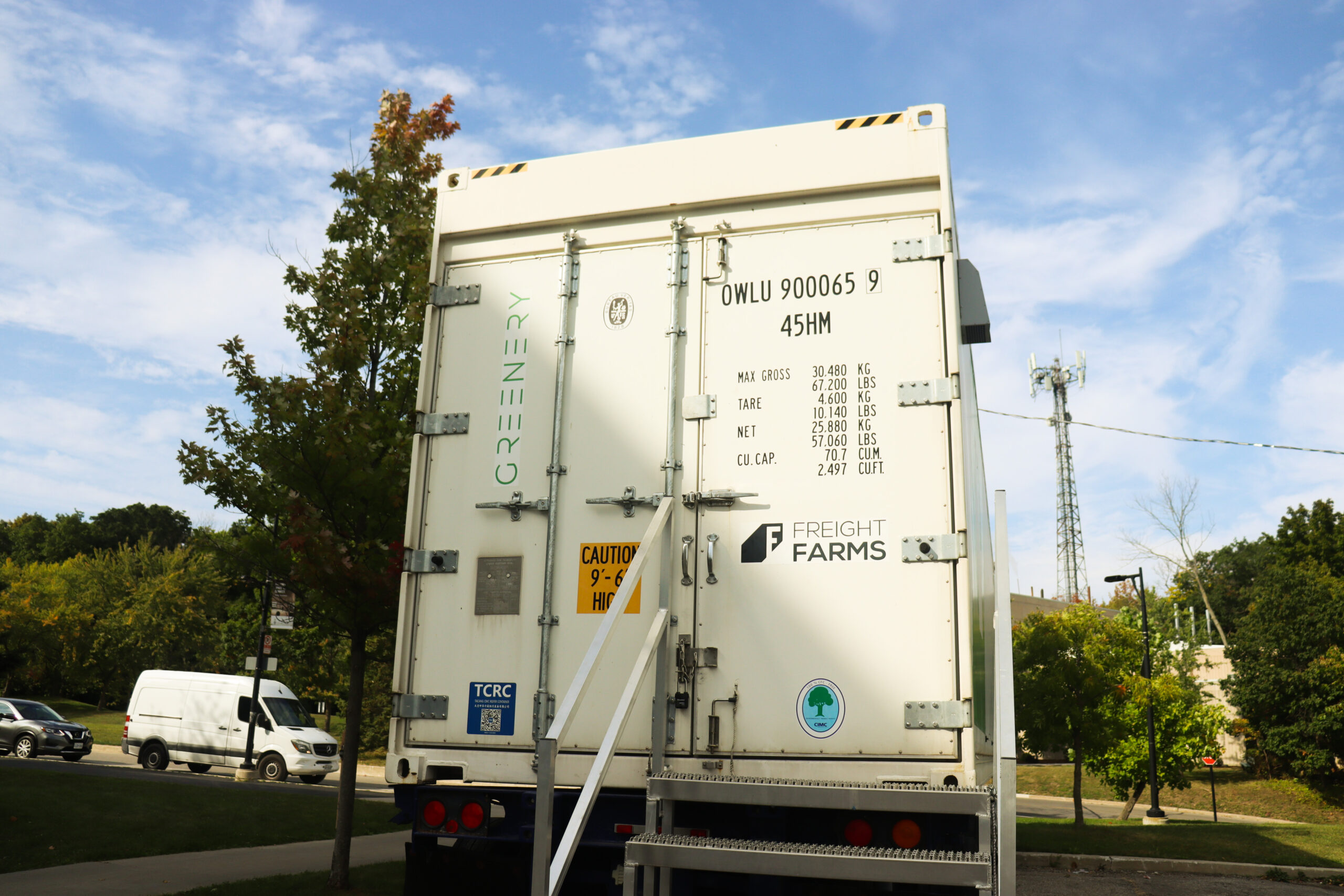UTM Farm: A step toward a greener future
The UTM Farm anticipates two to six tons of output annually to drive sustainability and transform food systems on campus.
At first sight, the University of Toronto Mississauga (UTM) Farm seems like another shipping container nestled in the parking lot near the Hazel McCallion Academic Learning Centre. But inside, you’ll find a high-tech hydroponic farming system pushing boundaries of sustainability, health, and local food production. Hydroponic farming refers to growing plants using nutrient-filled, water-based solutions. This sets the farm apart by prioritizing sustainability and efficiency, generating resources with minimal use of artificial or external tools.
The UTM Farm, which started as a steel box, has now become a center for cutting-edge environmental innovation, focusing on a greener future. But how did this start and why is it so revolutionary?
The UTM Farm is a collaborative project between UTM’s Hospitality and Ancillary Services and campus sustainability advocates. The project was motivated by a growing demand for healthier and more sustainable production options.
The UTM Farm grows over 60 types of produce, including kale, lettuce, thyme, arugula, cilantro, peppermint, basil, and parsley, while cutting back on the carbon footprint and environmental costs associated with food curation and transportation. Since the farm operates in a fully controlled and internalized environment, plants are not exposed to pests or diseases. This allows the farm to grow food without using pesticides, herbicides or other harmful chemicals, resulting in cleaner, healthier produce.
The UTM Farm is completely indoors and fully functional year-round. Its temperature and humidity levels are closely monitored and controlled, ensuring the maximization of a healthy and thriving environment.
One interesting component of the farm is that it uses high-efficiency LEDs to stimulate faster plant growth and increase production, which enables it to use less than five gallons of water per day for over 13,000 plants.
What makes this initiative even more exciting is where these crops end up. Instead of being shipped to distant markets, the produce grown at the UTM Farm is delivered directly to campus food services. From the Colman Commons to the Davis Food Court, UTM members can enjoy meals made from hyper-local, fresh ingredients.
The UTM Farm isn’t just about food production but also about education. The farm serves as an example of how innovative technology can address some of our most pressing environmental challenges, inspiring students to think critically about food systems and their origins.
The farm is managed and overseen by a retail assistant and special-trained farmer, Pawel Wegrzyn. Wegrzyn is responsible for the seeding, growing, harvesting and even delivery to the food service locations.
The diversification of plant growth and resource cultivation among small spaces are popularizing among agricultural and food gardening landscapes. Each new crop represents an opportunity to expand the farm’s offerings and further reduce the need for outsourced food.

